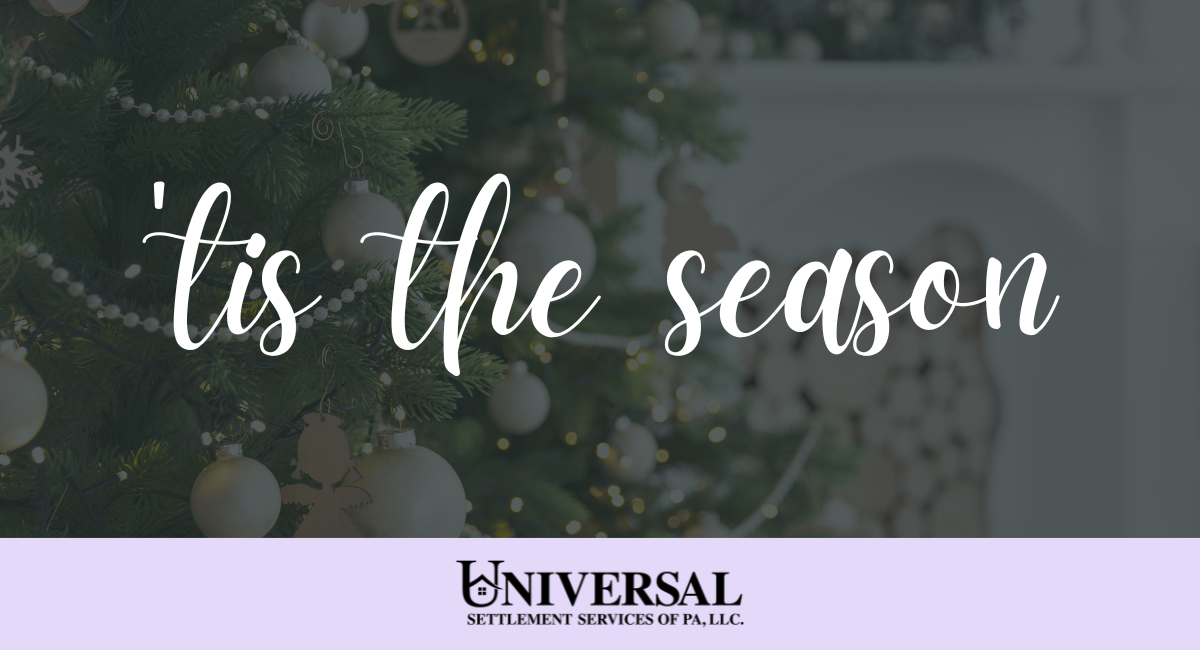Buying & Selling During the Holidays
Is it a good idea to buy or sell a home during the holiday season?
‘Tis the Season
Ah yes, the holiday season brings delicious meals, family time, and for some people—the prospective sale or purchase of their home. Our team thought it would be a great idea to give you some insight into making a move during the holiday season, so that you can make a more confident decision on whether to buy or sell a home during the holidays. And remember, no matter when you buy or sell, you’ll need a solid closing company. Our team is always ready to get your deal all wrapped up, with no extra fees.
Less Competition
First up, let’s consider what the holiday season means for most people. It’s a time to relax and recharge, take some time off work, and focus more on family and togetherness. Oftentimes, the market sees a withdrawal of active home listings during the holiday season, which makes it a particularly advantageous time to list or purchase a home. Due to all of the holiday festivities, most people would rather wait until the new year to get their homes sold. All of this adds up to a perfect situation to sell or purchase, as the competition for both buyers and sellers is typically lower. This can mean easier offer acceptance or more screen time and digital space for your listing. It’s a great time to take advantage of the market!
Getting Home for the Holidays
A unique advantage to being a seller during the holidays season is the idea that people want to have a home or be home for the holidays. The eagerness to get settled can play into your favor. Some buyers might be more willing to negotiate certain contingencies that they wouldn't normally because they want a faster and easier closing. Which is great for you because that SOLD sign will be one less thing to worry about going into the new year. Closing on your home at the end of the year also means you will get those home sale proceeds to use for the holidays—or to recover from them!
For buyers, you get access to a different set of advantages. Because there are less buyers traveling the home search circuit, scheduling home showings is a lot more convenient. Less buyers and competition also means you can give a more honest offer for the homes you're interested in and make sure you are choosing the house you want without worrying about one-upping anyone else. Plus, the extra time you might already be taking off during the holiday season can be used to work on your home closing.
The Seasonal Decor
The last topic we want you to consider when deciding to buy or sell during the holidays is decor. During the rest of the year, real estate professionals recommend decluttering and depersonalizing your listing. This is so that buyers can see themselves better in the home you are trying to sell.
One of the fun things about selling during the holidays is that tasteful and well-placed decor can make your home show even better! These things can help buyers see the potential in your home and give sellers a chance to boost the perceived value of their property. And buyers, there is no better time to appreciate or scrutinize the curb appeal of a property than during the holidays.
The Gift That Keeps on Giving
All in all, the holiday season can be an advantageous time to sell or purchase a home and it all comes down to how you approach it. Make sure you get a solid real estate agent to represent you and always remember—you have the opportunity to choose what closing company you want to use for your real estate transaction. The team at Universal is always ready to be your resource for closing, without the extra fees. Happy Holidays!





